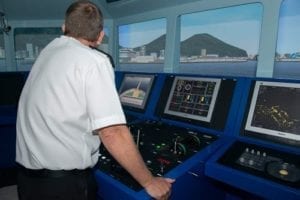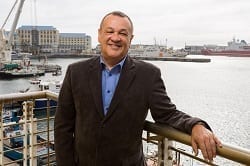The theme for World Maritime Day 2015 is “Maritime education and training”, thereby highlighting the need to focus attention on the wider spectrum of maritime education and training, to ensure the development of skills and the sustainability of a safe and secure maritime industry.
“In order to boost the ocean’s economy, we need to nurture the skills of the industry,” he adds. Jacobs says that it is important to recognise the wide range of challenges, risks and demands which seafarers face when out at sea. “Safety is a matter of skills development, training and behaviour. The only way to instil an efficient and safe working environment at sea is through continuous safety and wellness training that is of high quality and standard. “In order for the maritime industry to grow sustainably and contribute towards economic development, the skills of South Africa’s youth needs to be developed through training facilities which provide maritime education and training to youngsters interested in careers at sea. In doing so, we can mitigate the youth skills gap in the country and improve South Africa’s economic growth status,” he concludes. PS the Eastern Cape Maritime Summit will put the spotlight on the blue economy come November -ed.
South Africa is situated in one of the busiest and most prominent international sea routes. Its geographical location presents compelling opportunities for increased levels of trade and a thriving maritime industry.
Operation Phakisa, an initiative designed to fast-track economic growth programmes, has the ability to unlock the economic potential of the country’s oceans and maritime sector. This is according to Frederick Jacobs, chairman of Maersk SA.
“A study recently conducted by the Department of Environmental Affairs estimated that if this potential is “unlocked” the maritime industry could contribute R177-billion to GDP and create up to a million jobs by 2033. Building skills within South Africa’s maritime industry is, therefore, essential to reaching the South Africa’s economic goals and predicted job creation targets,” he says.
In light of World Maritime Day on Thursday, 24 September, it is important to recognise the contribution that the maritime industry makes towards local and global trade. This trade is not possible without seafarers and the vessels on which they operate.








